Organic farming. Honest storytelling. Strategic marketing.
The village of Haruno-cho in Shizuoka Prefecture, one of Japan's leading tea-producing areas, is known as the "village of organic tea." Here lies Osada Tea’s organic tea plantation. Extending over several hectares of slopes near a mountain-fed river, it’s a 30-minute drive from the firm’s head office in the city nearby and is approached by a road leading through a forest. While the area has suffered from depopulation and most of its residents are elderly, increasing numbers of the younger generation eager to make a start in organic farming and sustainable lifestyles are being drawn to this organic tea village.
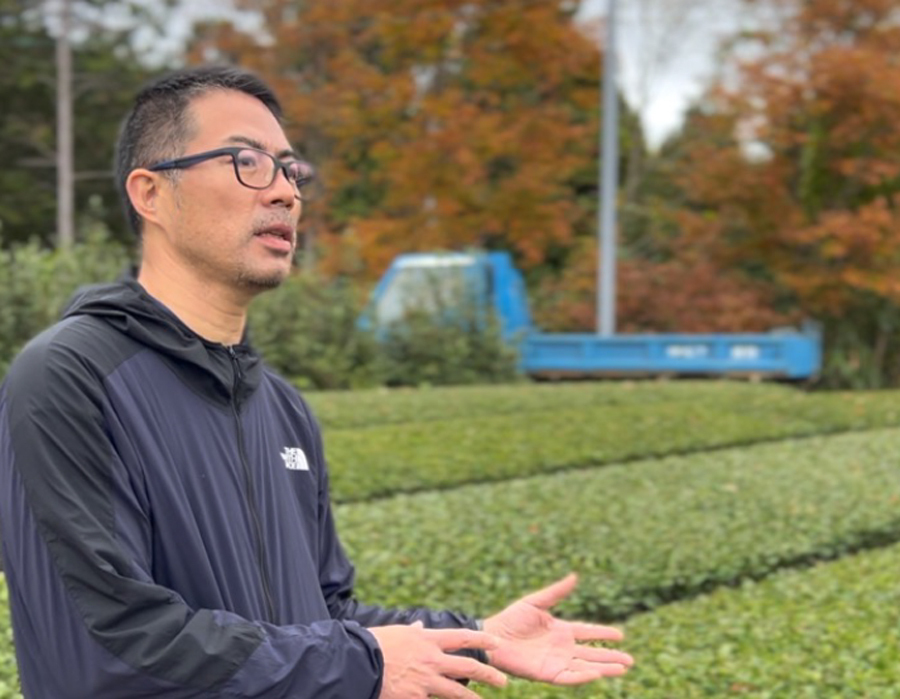
It takes a lot of time and effort to obtain Organic JAS (Japanese Agricultural Standards) certification, which itself is certified by Japan’s Ministry of Agriculture, Forestry and Fisheries and must conform to strict international standards. For example, a farm must provide evidence that no chemical fertilizers or chemical pesticides were used in the first three years after application, that it is not affected by airborne pesticides from neighboring farms, and that its factory strictly manages and maintains records on all production processes, which must be designed exclusively for organically grown tea. To maintain its certification, it must be inspected yearly by a third-party accredited inspection agency. Organic JAS certification was introduced in 2001, and Osada Tea Japan, established in 1948, had already been working on organic cultivation methods ten years prior to the system’s introduction, which meant the firm obtained certification at about the same time the system went into effect. They are now also certified by Ecocert, a world-class organic certification organization. Organic Japanese green tea cultivation, initiated by just two individuals with the same shared vision, has since influenced the entire area and earnt it a reputation as one of Japan’s leading areas for organic cultivation.
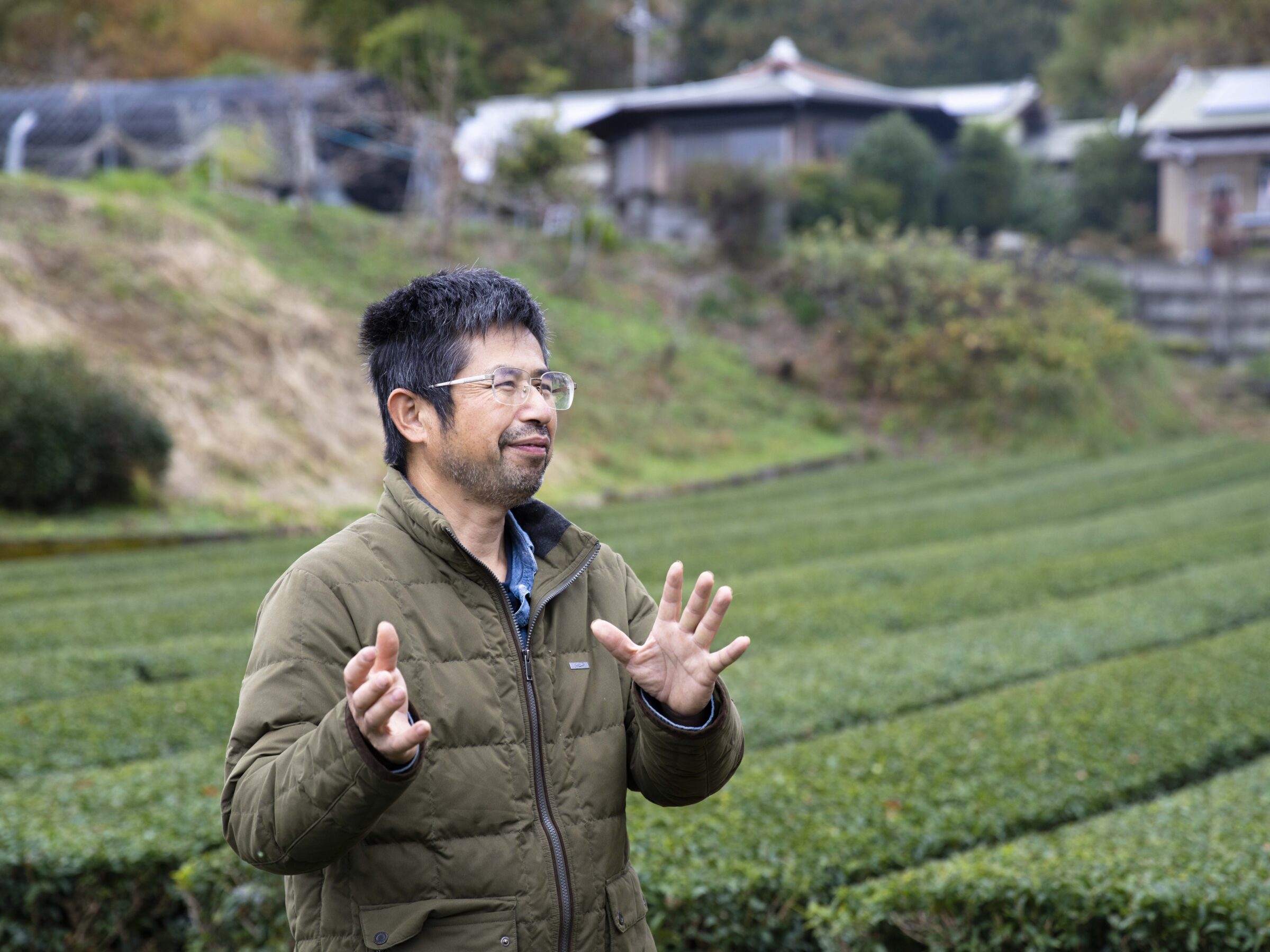
"We didn't start out with the aim of selling under the 'organic' label – this is just where we ended up as a result of following our own philosophy," says Takeshi Suzuki, one of the farmers introduced to us by Natsumi Osada, the company president. He then explained that "Because the Izumidaira and Isagawa districts of Haruno-cho act as a water source, using chemical pesticides here will affect not just your farm but also the water source and fields downstream. This would create problems if someone downstream wanted to start organic farming." While use of certain regulated plant-derived organic pesticides is permitted, Mr. Suzuki’s position on this is clear; "Insects tend to infest during the hot summer months, so dealing with them is the most important task. After plucking the new shoots at the beginning of summer, if insects appear in the growing part, we cut these off so the plant can grow back in better shape the following year. This is how we protect the new sprouts." While Mr. Suzuki studied organic farming at university, he comments that it was much more challenging in practice than he had imagined. After the first few years of getting nowhere, through repeated trial and error and learning from his predecessors in organic farming, he finally started to get a foothold. "As long as we all enjoy the fruits of nature, we humans must always share its bounties with all creatures of nature. But in reality, you can't use the parts that insects have got to, so you cut them off and leave them for the insects, while protecting what you have harvested to consume – using organic methods, of course." Mr. Suzuki, now with many years of experience in organic farming, speaks as one enlightened into natures ways by implying that humans, after all, are nothing more than a part of nature.
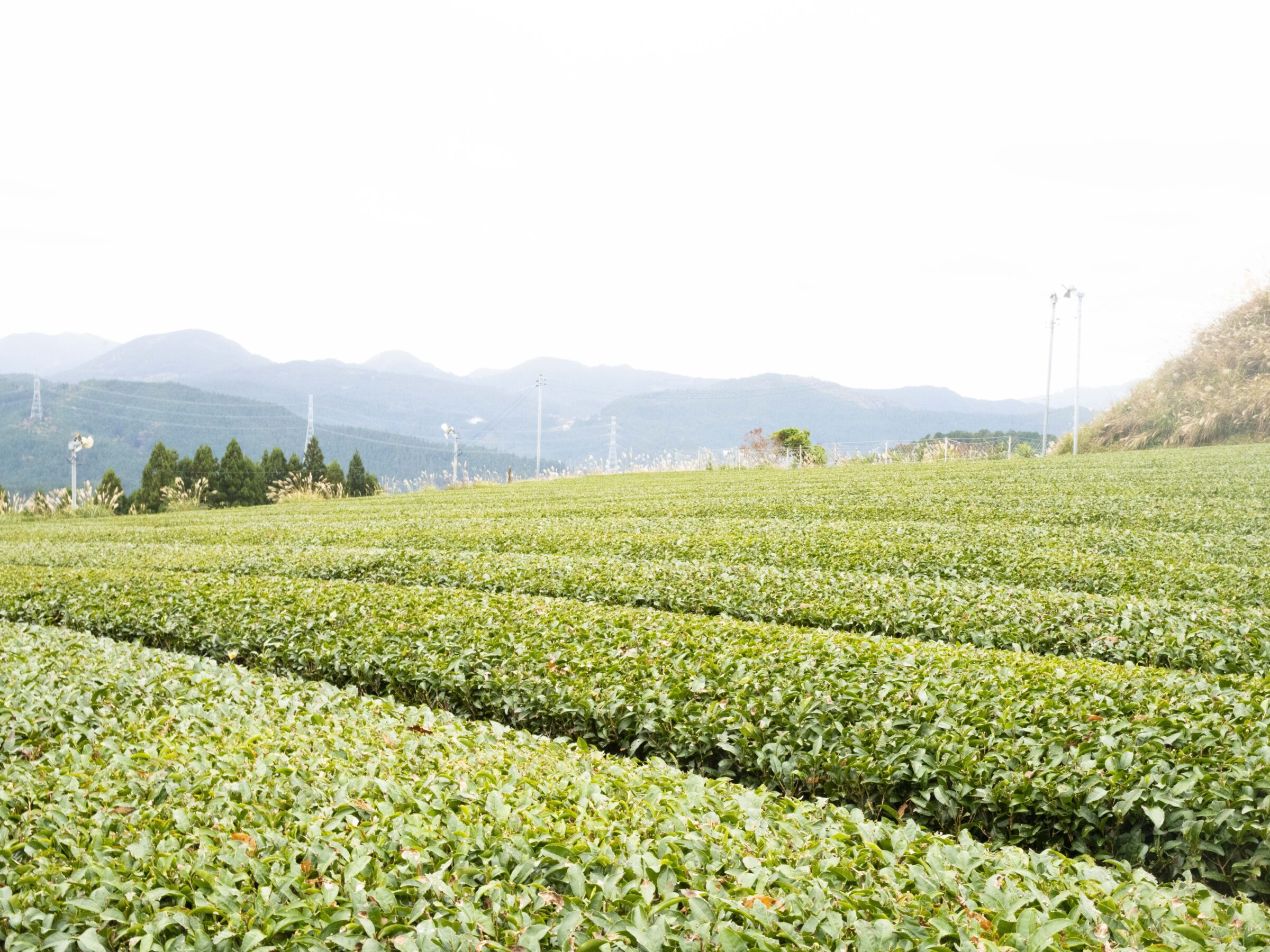
The types of tea generally preferred in Europe and North America differ from those in Japan, with fragrant teas that are less astringent and easier to drink being more popular. Above all, demand for organically grown Japanese green tea is high. As 70% of the company’s organically grown tea sales are overseas, transparent information disclosure is expected and appreciated as well as organic certification. However, increasing the yield of organically grown tea is quite challenging. Even if you’re abiding by the laws of nature, this presents a dilemma from the perspective of business. "But organically grown branded teas are popular because of their rarity," says Mr. Osada, and inquiries from overseas buyers wishing to learn more about the story of their cultivation and to witness production first-hand are increasing. With this in mind, he aims to promote initiatives that allow visitors to experience organic tea cultivation in the field.
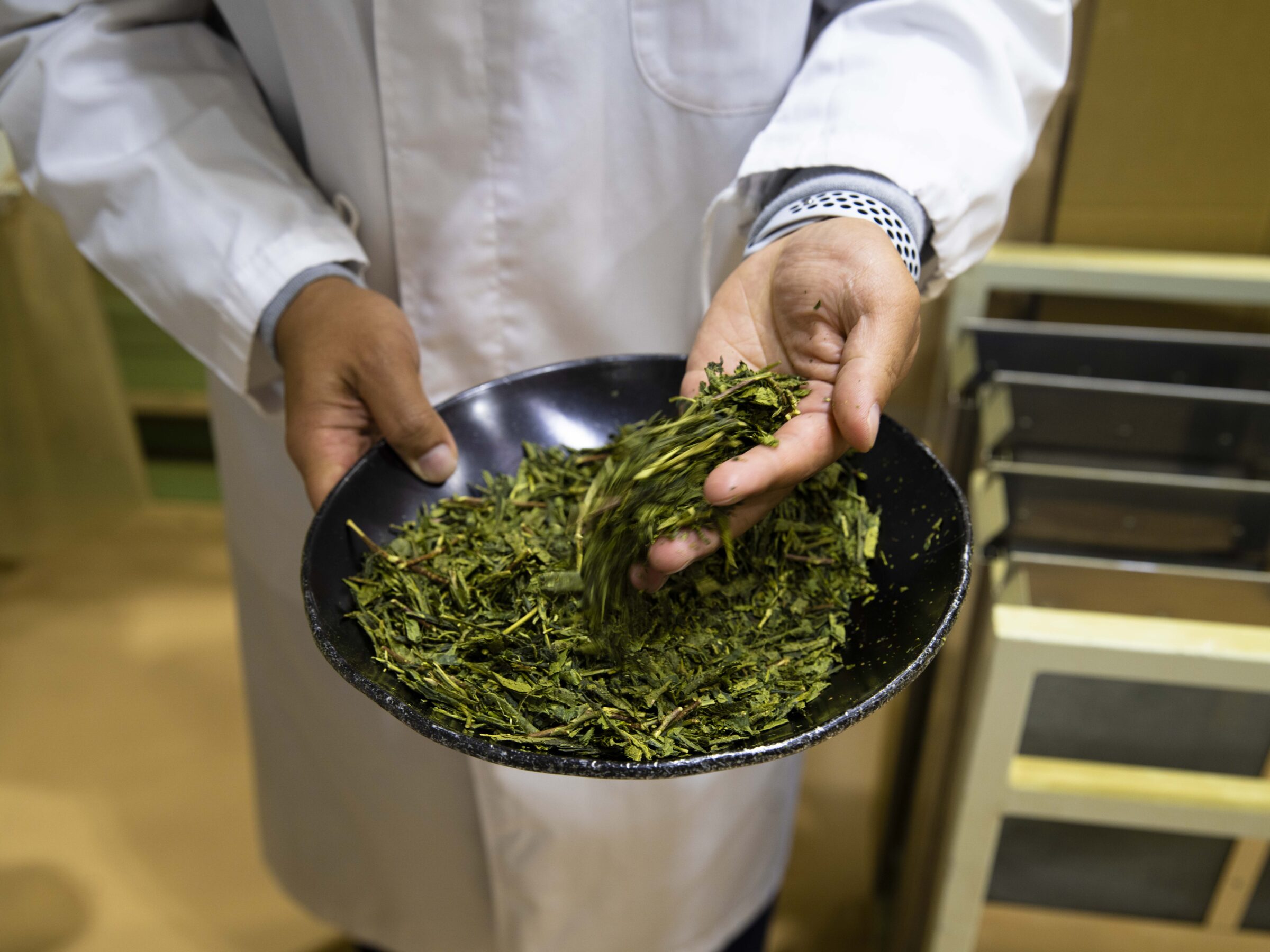
"We also receive inquiries from people overseas who can relate to our story and the stories of our farmers, and who wish to become authorized distributors," says Hiroshi Yamamoto, who heads overseas sales. "No matter how good you do things, people won't know about it if you don't show them. That's why I adopt a marketing and content business perspective for proactively engaging and informing the world about what we’re doing." This means having both the skills of the craft needed to produce and manufacture safe, secure, and high-quality tea as well as the objectivity and transparency required to maintain it as a business. "We always try to make sure that the information we provide is what both buyers and consumers wish to know and find useful, so we make every effort in this regard at all times." And that gives the brand the power of content and additional value, which further bolsters trust and recognition, according to Mr. Yamamoto.
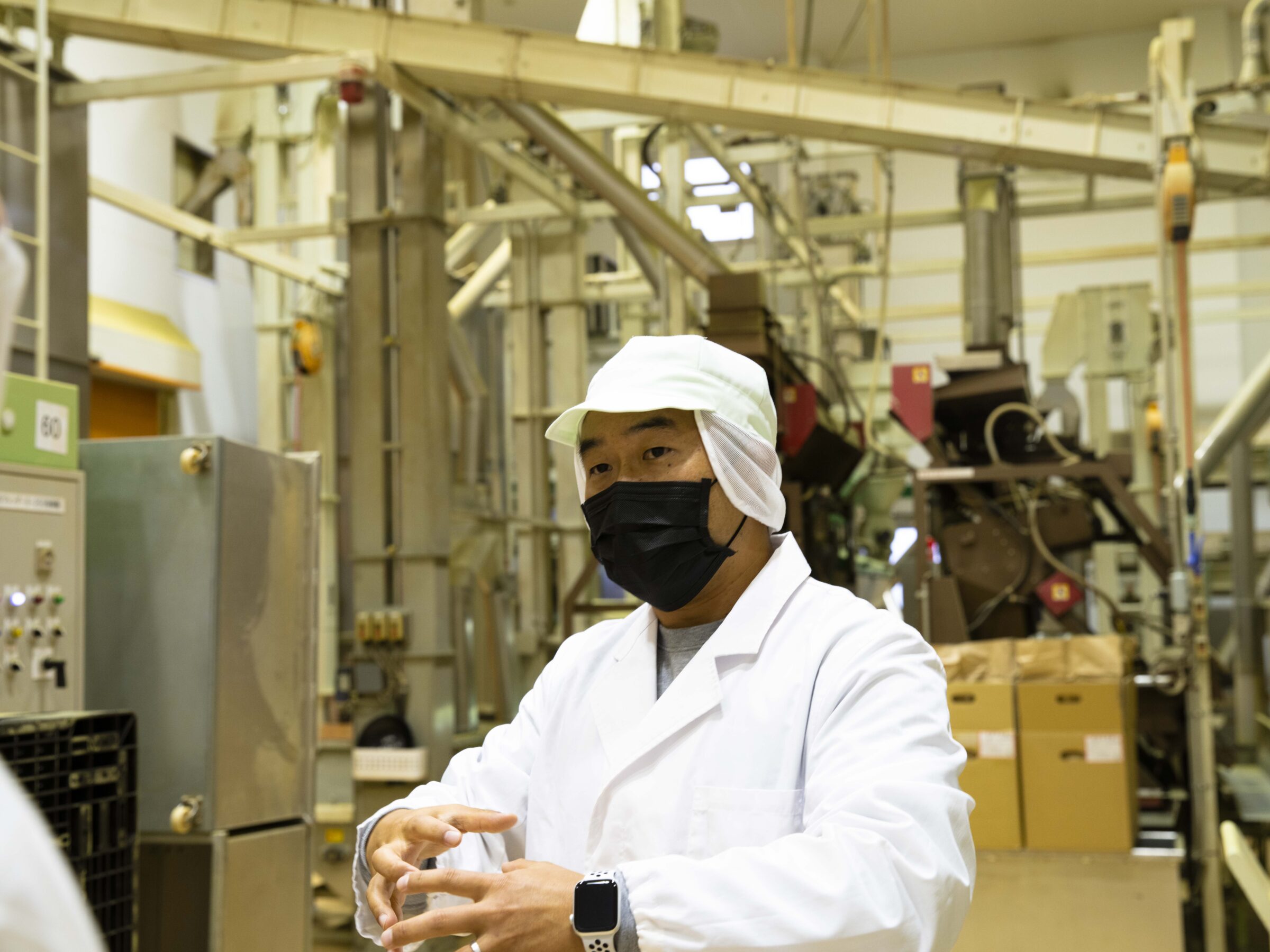
This approach – one of confidently stating that information disclosure, factory tours, and contact with farmers are all welcome – expresses the company’s genuine commitment as a tea producer precisely. Mr. Osada says, "We believe in co-existence and co-prosperity with our farmers. By striving to expand our sales channels we can protect our farmers and grow together." These sincere behind-the-scenes efforts and ‘hide-nothing’ attitude are important in today’s world where trust is constantly being questioned. All of this places Osada Tea Japan's organically grown Japanese green teas and highly transparent business style in a very good light, helping to spread its message throughout Japan and the world, just as clean, fresh water always runs from upstream.
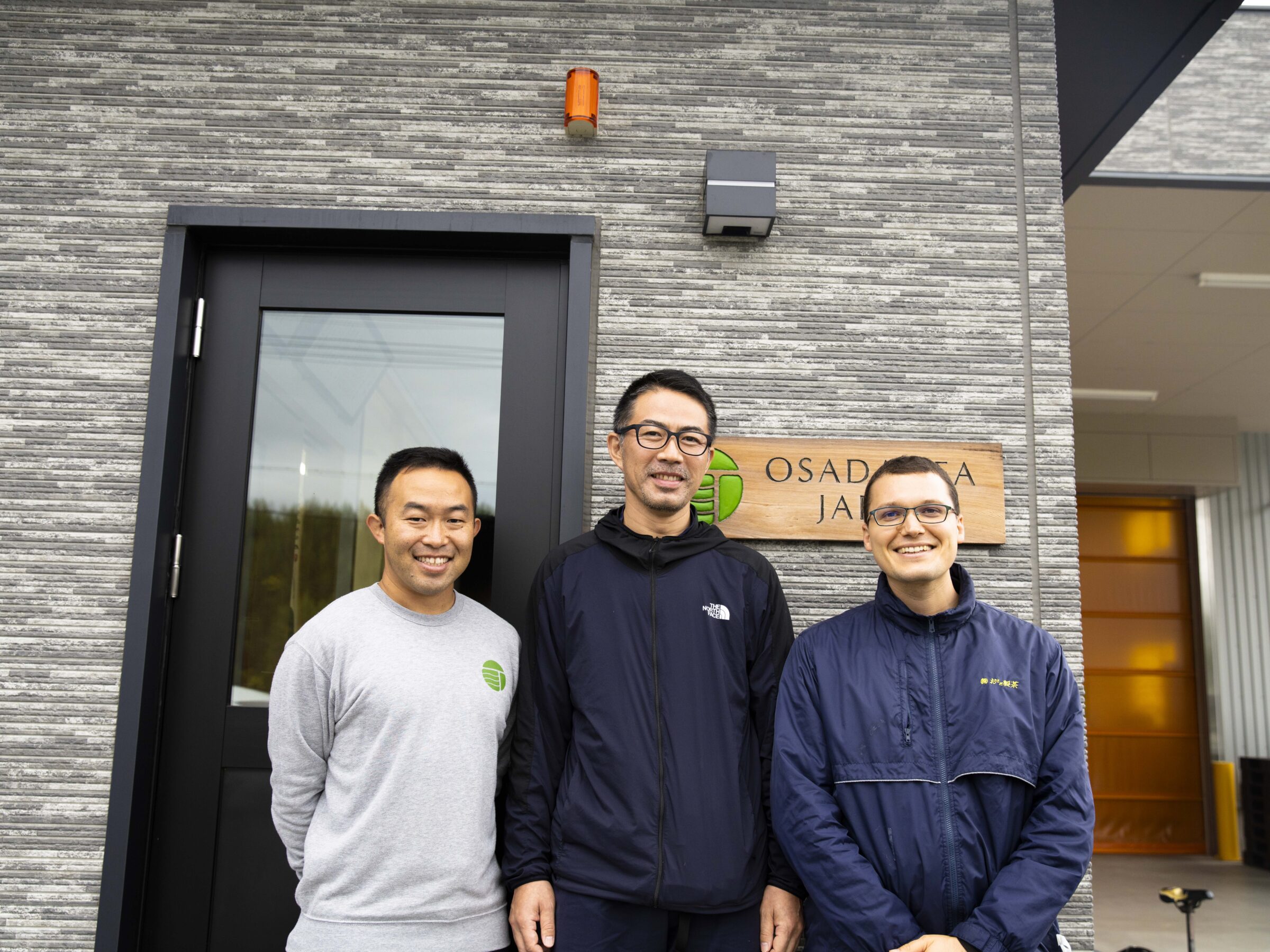
Osada Tea Japan is a tea manufacturing wholesaler located in Mori-machi, Shizuoka prefecture, a district well-known for high-grade tea production within Japan's most notable tea cultivation area. Since its foundation in 1948, the company has built solid bonds of trust and relationships with local tea farmers and taken initiatives to promote organic tea farming in the area. Their motto is to make their customers’ happiness their happiness.



